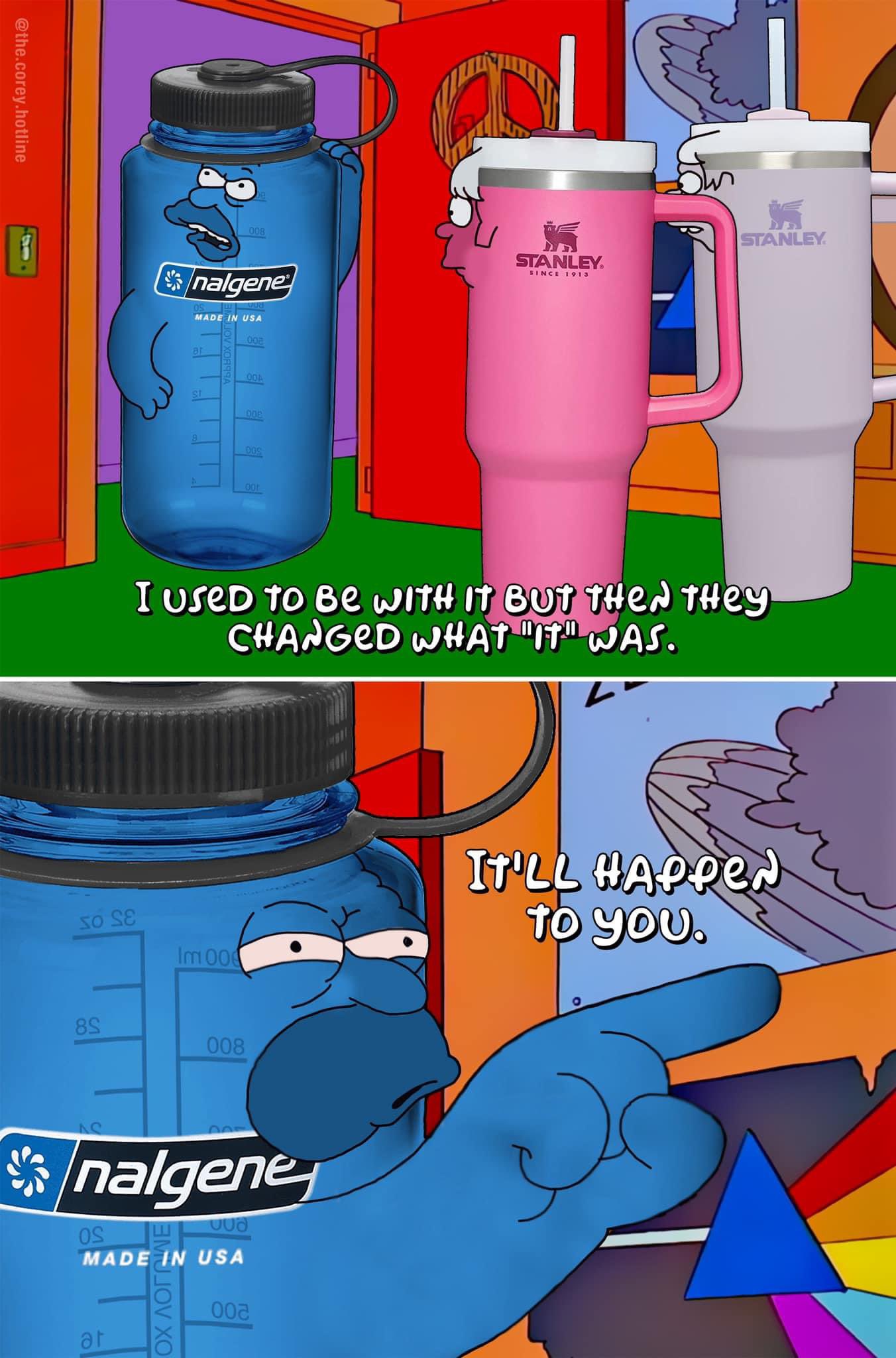this post was submitted on 09 Feb 2024
812 points (98.3% liked)
memes
12251 readers
2306 users here now
Community rules
1. Be civil
No trolling, bigotry or other insulting / annoying behaviour
2. No politics
This is non-politics community. For political memes please go to [email protected]
3. No recent reposts
Check for reposts when posting a meme, you can only repost after 1 month
4. No bots
No bots without the express approval of the mods or the admins
5. No Spam/Ads
No advertisements or spam. This is an instance rule and the only way to live.
A collection of some classic Lemmy memes for your enjoyment
Sister communities
- [email protected] : Star Trek memes, chat and shitposts
- [email protected] : Lemmy Shitposts, anything and everything goes.
- [email protected] : Linux themed memes
- [email protected] : for those who love comic stories.
founded 2 years ago
MODERATORS
you are viewing a single comment's thread
view the rest of the comments
view the rest of the comments

Nalgene bottles were pure BPA, stainless and vacuum insulation are huge upgrades.
Technically, the Nalgene in the picture is the revised Tritan BPA-free design. But your point still stands. BPA or not, the less plastic touches my food and drink, the better.
Tritan plastics are used in labratory environments, I feel like we would have heard something if it was leeching anything. The high usage rate in those environments are what gives me faith in the product.
Are they single use or multi-use in the lab?
Nalgene has been BPA free since 2008, don't hate on them!
Additionally, the minimal materials and manufacturing process are more environmentally friendly than metal vacuum seal bottles.
Vacuum seal bottles use a lead plug in the bottom, not so healthy when things go wrong with them.
Lead in vacuum seal bottles is avoidable, if it’s something you’re worried about it’s not hard to get lead free. I also highly doubt anything plastic is better for the environment in the long term, given that no plastic is going to last without degradation for that many years compared to something made of metal. And once that plastic does degrade it’s going straight into a landfill or the environment with all the other microplastics. Maybe optimistically it could be recycled once or twice, but beyond that you get diminishing returns and it’s trash again.
They might technically edge out metal production on one or two measurements, like power used (since you don’t have to smelt plastic), but as a society we have to stop pretending the plastic we use isn’t going to degrade. Plastic is temporary, then it turns into brittle, environmentally poisoning trash. There’s not a good reason to use it for something that can be easily replaced by metal.